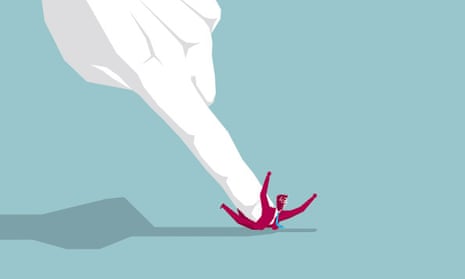As an advocate of free speech, I am an unlikely person to defend the current move towards “safe spaces” and “trigger warnings” on university campuses. And I am not going to. But I am going to tell a story to illustrate that words can be weapons, and that those weapons can cause great harm.
The idea behind the trigger warning is that if you don’t provide – for example – a rape victim with advance information about, say, the examination of a literary text that deals intimately with the subject of sexual violation, then you may be endangering their mental health, by exposing them to a “trigger” that will stir into life previous trauma. Likewise, someone who is transgender might be damaged by the expression of the view that they “weren’t really” of the sex they defined themselves as.
Such ideas are, according to some views, being extended so that anyone who is caused any kind of upset by a view or opinion that is not in accord with their own may be “protected” within the “safe space” that a university campus should supposedly provide.
I stand by my view that universities are places where difficult and challenging views may be expressed freely. But an experience I did have made me realise something I hadn’t previously understood: how the simple matter of words in thin air can severely damage someone, if the words are sufficiently ill judged and the person particularly vulnerable. The situation was not a campus but a radio studio. I had been invited on to BBC radio. The producer contacted me less than 48 hours before recording, to ask if I would talk about a sensitive subject – whether or not, in the light of debates regarding the “right to die”, those who were seriously mentally ill also had a right to take their own lives.
I was being asked because of the memoir, The Scent of Dried Roses, I’d written on the suicide of my mother, Jean, in 1988. I had talked about it in the media many times, and talking about it had never had a knock-on effect. I wasn’t keen to revisit what was obviously a painful subject; but, as on previous occasions, I felt a sense of duty to contribute to the debate on what remains a taboo issue.
Rather than gently examining the sensitive issue of whether mentally ill people have the right to take their own lives, the interviewer took 30 minutes to explore in great and unrelenting detail my own suicidal depression, when I was 30 years old – how I teetered on high buildings and the edge of tube platforms. He then sought a blow-by-blow account of my mother’s death: how many attempts she had made, what she did on that day, what method she used (“Hanging,” I told him, in a whisper). This culminated in the brutal question: “Do you think you could have done more to save her?”
This was a conundrum that had tortured me, and which continues to haunt me. I felt like a witness being examined by a prosecuting lawyer.
Of course I thought I could have done more to save her. Every suicide survivor will feel the same, and will struggle with their sense of personal responsibility.
By the completion of the interview I felt tainted, guilty and sad. I felt that something had shaken loose inside me. Later, I contacted the producer and asked her to pull the programme. She agreed. But from that moment onward I began to sink into clinical depression. The trigger had been pulled, and the bullet had hit me straight between the eyes.
Over most of the year that followed, some part of me was always in that freezing darkness, and sometimes it threatened to overwhelm me. I struggled with it up until about a month ago, when the episode finally ended.
Elements of the interview were deeply morally questionable. I had no warning of what was going to happen. No one with a “mood music” of depression should be subjected to an examination of their personal motives and responsibility. This worked as a kind of torturous anti-therapy.
A “trigger warning”, in this case, might have saved my family and me a great deal of suffering. I don’t know whether or not I would have taken any notice of it – up until that interview, I had no idea that I could be so traumatised by spoken words. But clearly, exposure to certain subjects, at a certain level of intensity, can be profoundly dangerous for those cursed with this particular achilles heel.
This is not, I should stress, an argument that trigger warnings should become commonplace on campus. But there is no doubt about it: the simple utterance of words can do psychological harm.
No one should be banned from campuses for having challenging opinions. But those who decide to participate in such events should be aware of what they might be getting themselves into and be given the information to make a reasoned decision about participation. This is particularly true for those on a panel rather than those in the audience, who do not have to “defend” anything. And then, all things considered, the debate should go on, unfettered.

